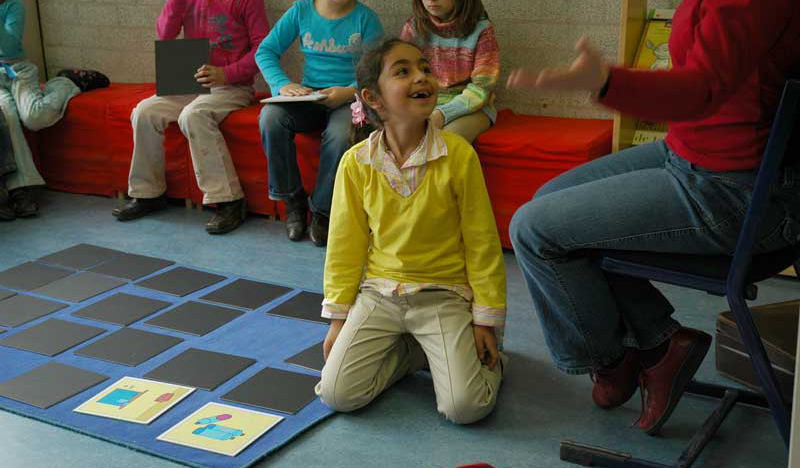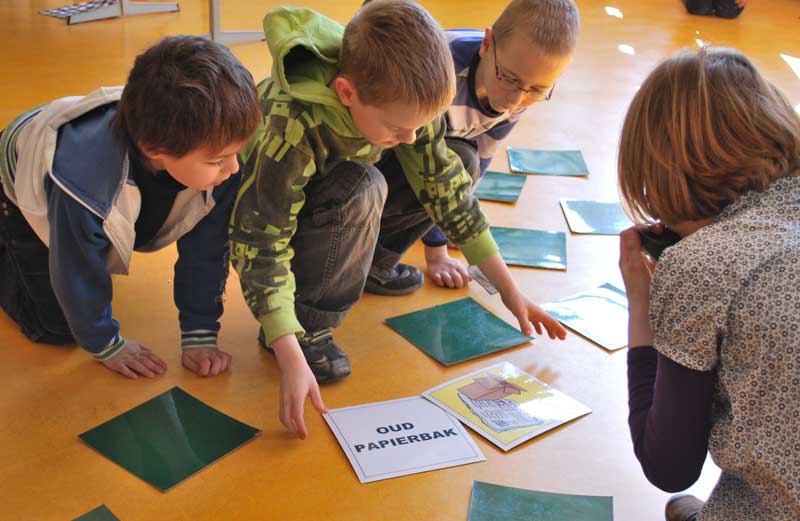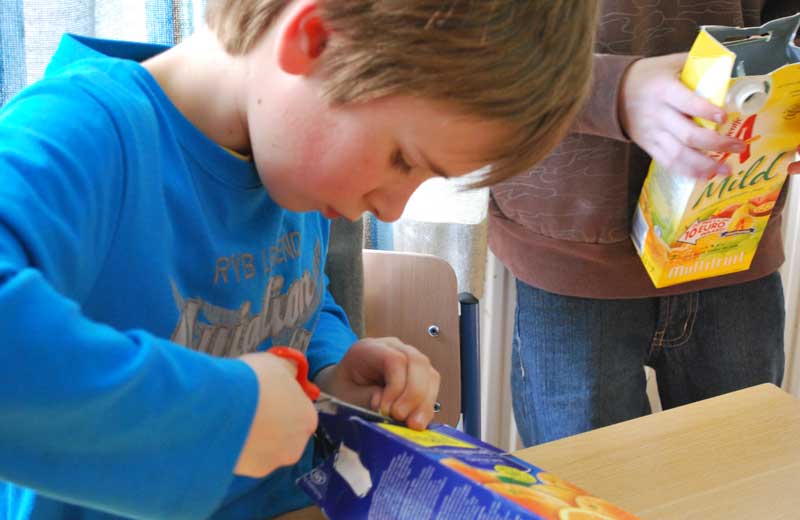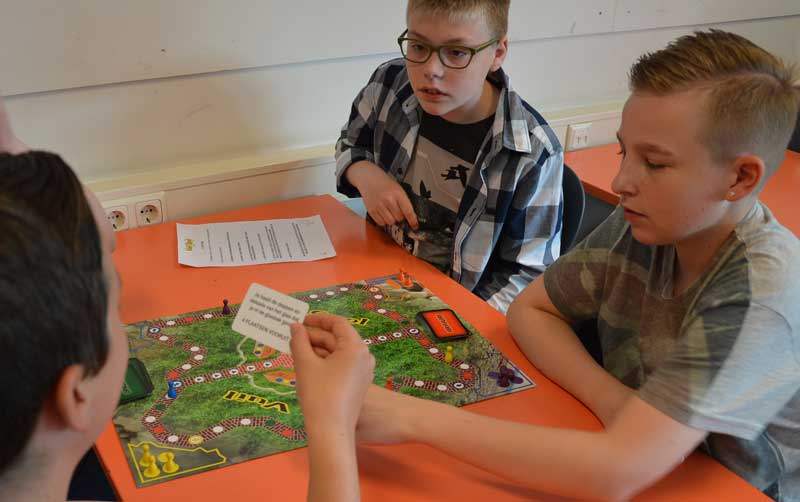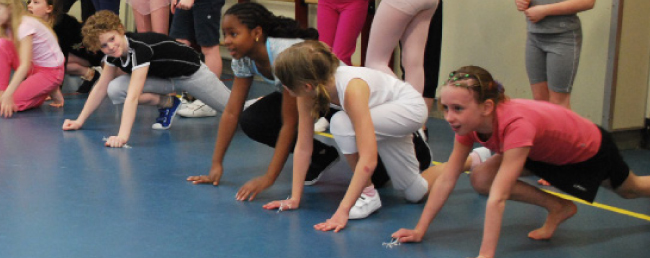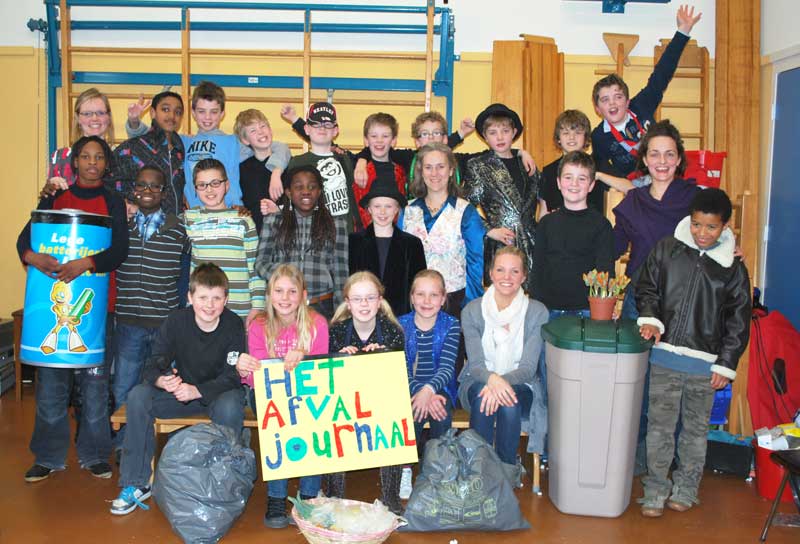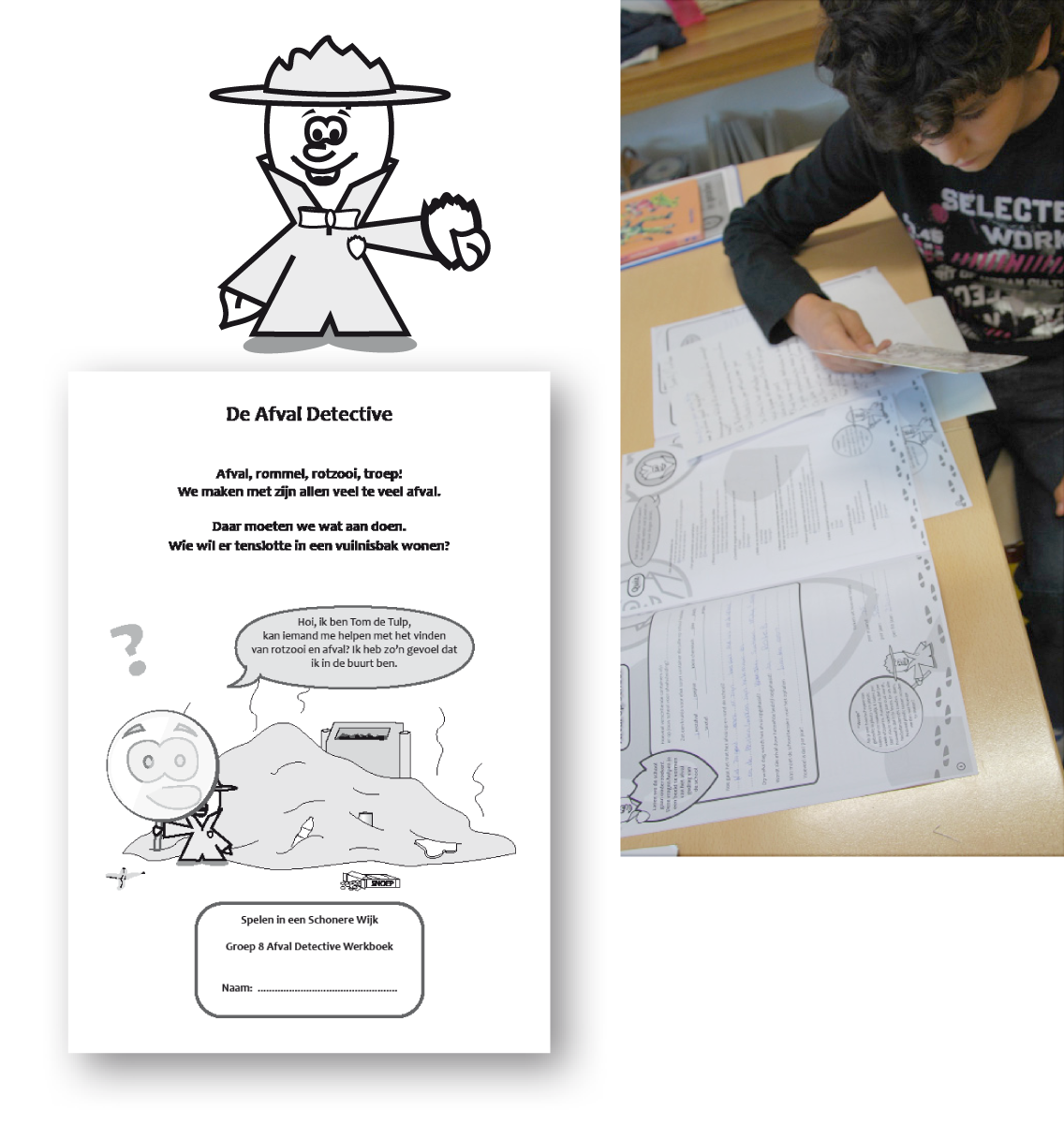5th Grade: Eco News Show
A play performed as a live news program. There is a script with guidelines
and a c.d. is provided with music for in between the scenes. There are
also worksheets available to assist students in making posters, show tickets
and programs. This activity takes the most time out of all the lessons,
between 12-15 hours which includes 2 performances. If this activity is
too time consuming, an alternative lesson plan can be created by using
elements from the 4th and 6th grade program. This in combination with short
films from Internet about trash and recycling makes for a good alternative
if performing a play does not fit into the planning.




